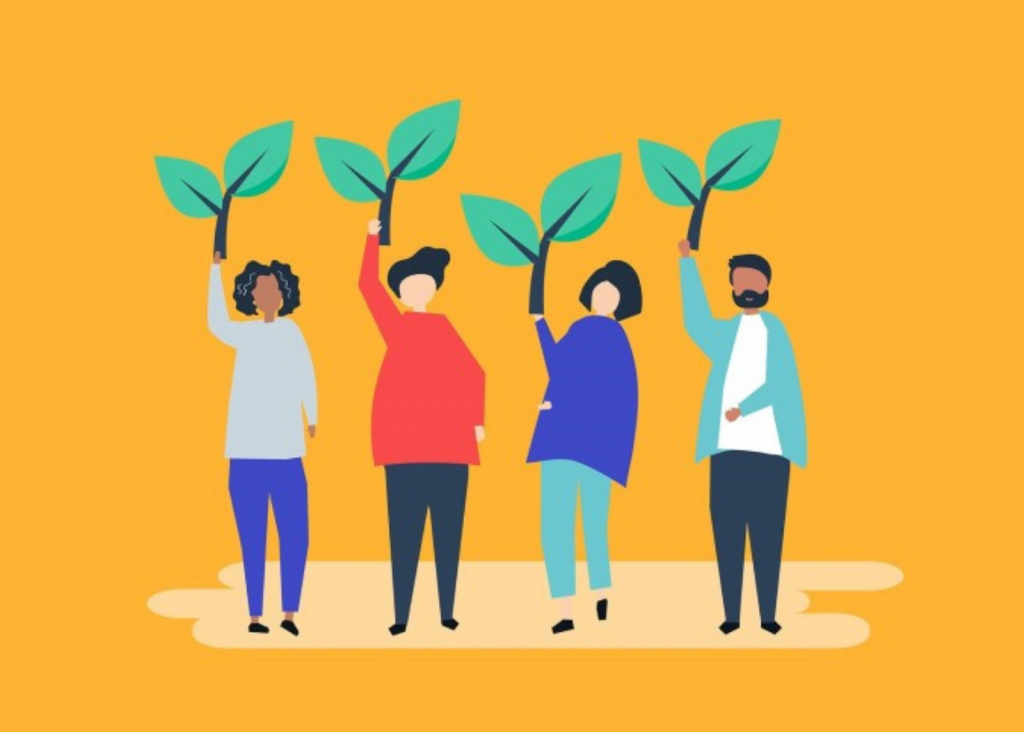It’s a classroom not a pedestal.
We need more passionate people in the world that will drive social change. Selflessly.
I keep this in mind as I approach this topic with caution as it’s a no-brainer that people get easily put off the idea of participating in non-profit causes. But watching the aggrandisement of NGO (non-profit organization) founders that hardly corresponds with society’s solutions, gives me a moral obligation to write about this.
I accepted the LinkedIn request of a recent graduate who described his ideal job in a post as one which offers him independence to make money, gain social recognition and gives him the opportunity to find answers to some of the world’s problems.
After a few weeks of following him, I observed he had edited his status from Job-seeker to Founder. Tony Anjorin, Founder, Initiative for Youth Empowerment and Rehabilitation. Then the bio section read “A Social entrepreneur, making impact, one person at a time”. How noble.
I’ve met a few people like Tony. Really cool people. But they fall into the temptation of starting a nonprofit or foundation. Founding something comes naturally to altruistic people it seems. But after a couple of solo efforts undertaking drug abuse outreaches, breast cancer awareness campaigns and youth mentoring sessions, the reality of charity fundraising settles in.
Registering a charity becomes a logical way to legitimize good motives in order to attract donors. So, we end up with all these people becoming founders.
You may ask, what is unremarkable about becoming an NGO founder, if you really want to make a difference and you don’t get the platform to do it? If no one gives you a seat at the table, shouldn’t you bring your own chair?
You might also argue that the world needs change agents to tackle poverty in Africa, immigration in Europe and terrorism in Asia. The more the merrier.
I’ll tell you this.
The world doesn’t need more Heroepreneurs
I’m inclined to say there’s been a decline of role models like the Nelson Mandela’s and Mother Theresa’s in our time. Ordinary people, recognised for the impact of their self sacrifice for humanity and not for promoting personal image as founders of this or that NGO. Times are changing. Our society today regards notability over a person’s footprints. Sad.
Last year I got invited to the golden jubilee celebration of an elite in the city where I was born. The celebrant’s publicist did a pretty good job promoting him prior the event. I was sure that I heard more about this man than the impact his organisation was making.
When I checked out the budget of his week-long event, it was almost twice the amount he donated to a village project, which earned him the title “philanthropist” as reported in a recent newspaper publication. This is heroepreneurship.
On the flip side of heroepreneurs are the truly noble men. Fazle Hasan Abed is a story I like to tell. Hasan left London to accept a well-paying job in his country, Bangladesh.
When a cyclone hit Bangladesh in 1970, millions of people were displaced. Hasan wanted to help so he resigned only after two years of working. He sold his flat and set up an NGO (BRAC) with £40,000 proceeds. Hassan’s type is not very common. But you might be one of them.
Collaboration
A friend once tried to register a foundation with Nigeria’s Corporate Affairs Commission. A name search was done, and he settled for a sentence of seven words as the NGO name. The desired names had already been taken. This situation portrays the proliferation of NGOs in this region. My advice to social impact-ers therefore would be collaborate, collaborate, and collaborate some more.
While experienced NGOs need strengthening, new ones need experience. Even in the startup sector, partnerships, alliances and collaboration are preferred to single entrepreneurs in many cases because complex problems require multiple expertise.
A true social impact-er is open to share ideas with people of like minds for deeper engagement of a problem. By identifying a range of ways to contribute and roles to be played, they can help to correct and redesign broken societies.
Follow the learning curve
If you already are founder of a non-profit organization, congratulations! The world of social change is big enough for a multitude of us. There is a diversity of problems begging for solutions. The keen, smart, even the spotlight-seeking social entrepreneurs record success and failure at work.
But while you’re at it, think about what you’ve learned or helped people to learn as a founder.
The most important job you have to do is learning. As the Sustainable development goals (SDG) indicators keep evolving, countries keep learning ways of meeting their targets.
So, if you’re concerned about the uncertain future of your chosen vocation, get off that pedestal, roll up those sleeves and take a seat in this classroom.


